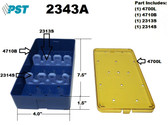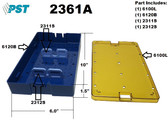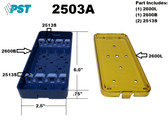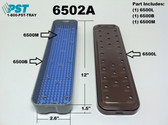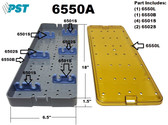 Loading... Please wait...
Loading... Please wait...Categories

Laser surgery not suitable for eyes? Try Lensectomy
Posted on Mar 23rd 2022
One of the drawbacks of laser surgery is that it is not suitable for everyone. Our eyes must be examined by an experienced ophthalmologist to see whether it is suitable for performing laser surgery. Treating unsuitable person with laser surgery can turn disastrous. Do not get disappointed when you come to know that you are not suitable for laser eye surgery.
Usually people are unfit for performing laser surgery because of reasons like age, high prescription etc. They may think that glasses or contact lenses are the only options left for them. But there is an alternative way to provide clear vision.
Refractive lensectomy:
Refractive lensectomy is ideal for patients who are not fit for undergoing laser surgery. Lasers are known to reshape the cornea but in this procedure, the natural lens of eyes is removed and replace with a man made polymer lens. They eliminate the need for wearing glasses or contact lenses and provide flexibility with focusing. Some of the ideal patients for lensectomy are people more than the age of forty. People who are also disqualified from performing laser surgery because of thin cornea are also eligible to perform lensectomy. People having cataract, high prescription, who are dependent on corrective lens for clear vision and who have signs of eye ailments such as glaucoma are best candidates for performing lensectomy. If you are over the age for forty five and need bifocals for clear vision, you can perform lensectomy and eliminate the need for glasses. However you will need to wear reading glasses.
Surgery procedure and Recovery:
General anesthesia is given during surgery and it is quite simple. If needed, sedatives such as topical anesthesia are given. The original lens of the eye is removed and it is replaced with artificial lens. Stitching is not required as the lens seals itself with the help of eyes natural pressure and heals on its own. During the healing process, there is little discomfort and within some hours after surgery, the patient is able to see clearly. If there are signs of astigmatism, it is corrected with the help of limbal relaxing incisions. Sometimes lens implants are also done to correct astigmatism. Occasional blurring of eyes accompanied by light sensitivity is normal during the recovery period for some weeks. If you experience any other symptoms after the surgery, consult your ophthalmologist immediately.



